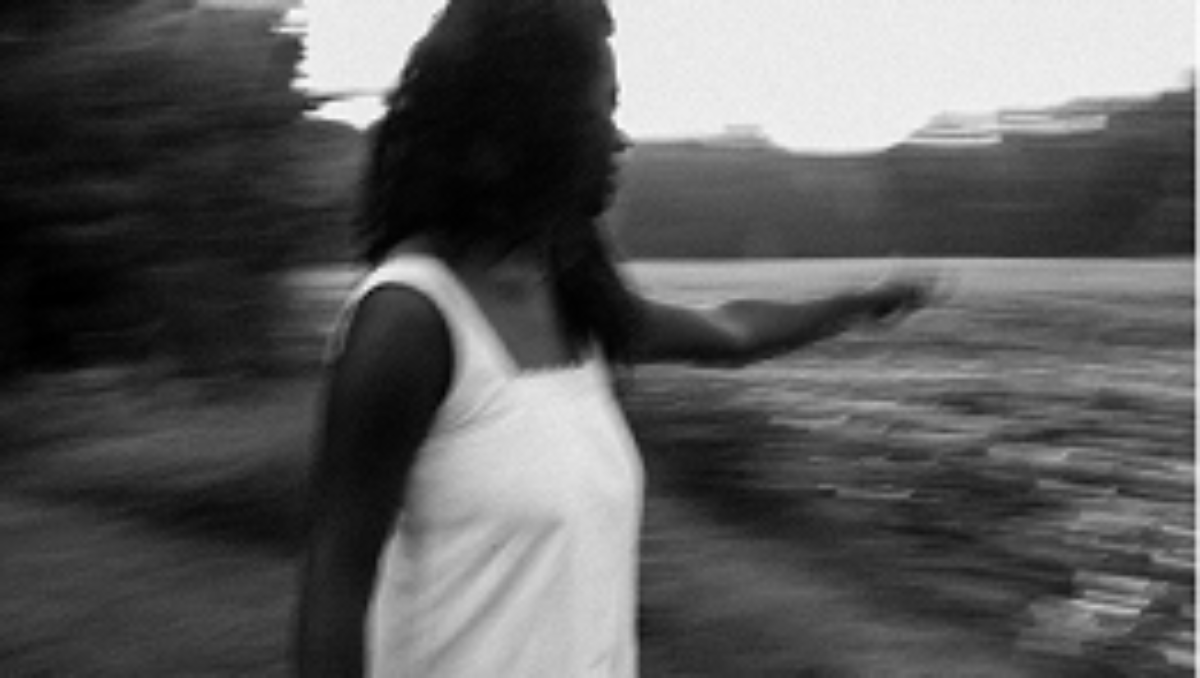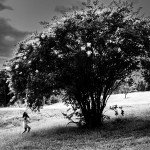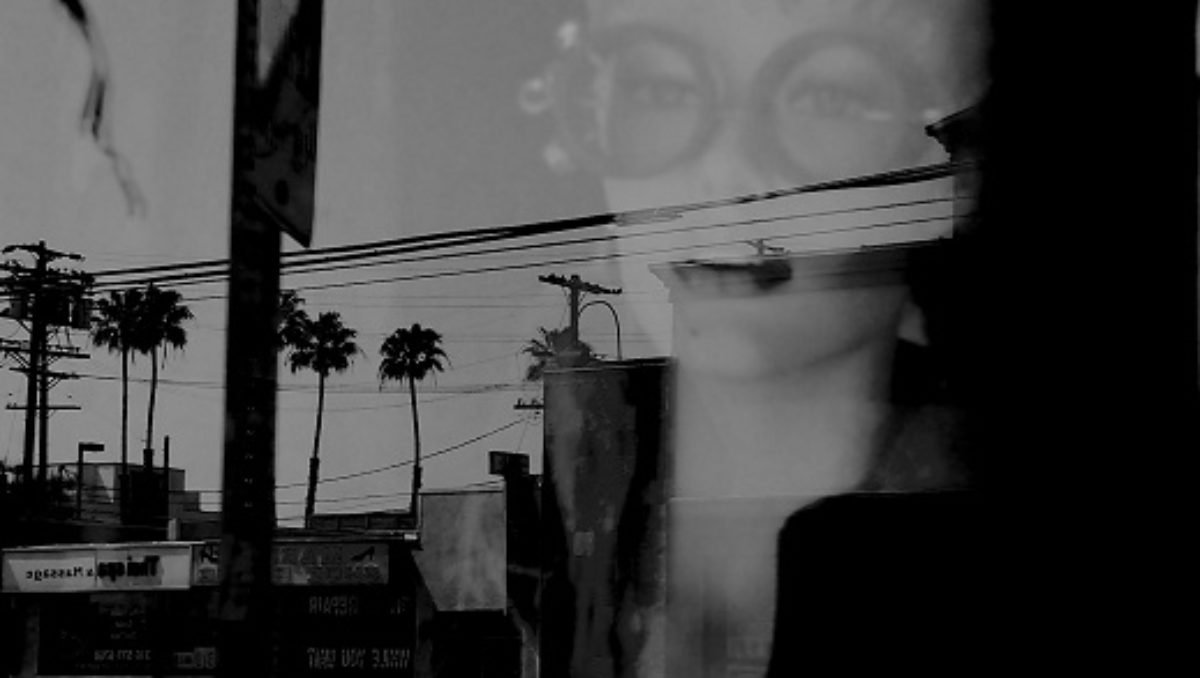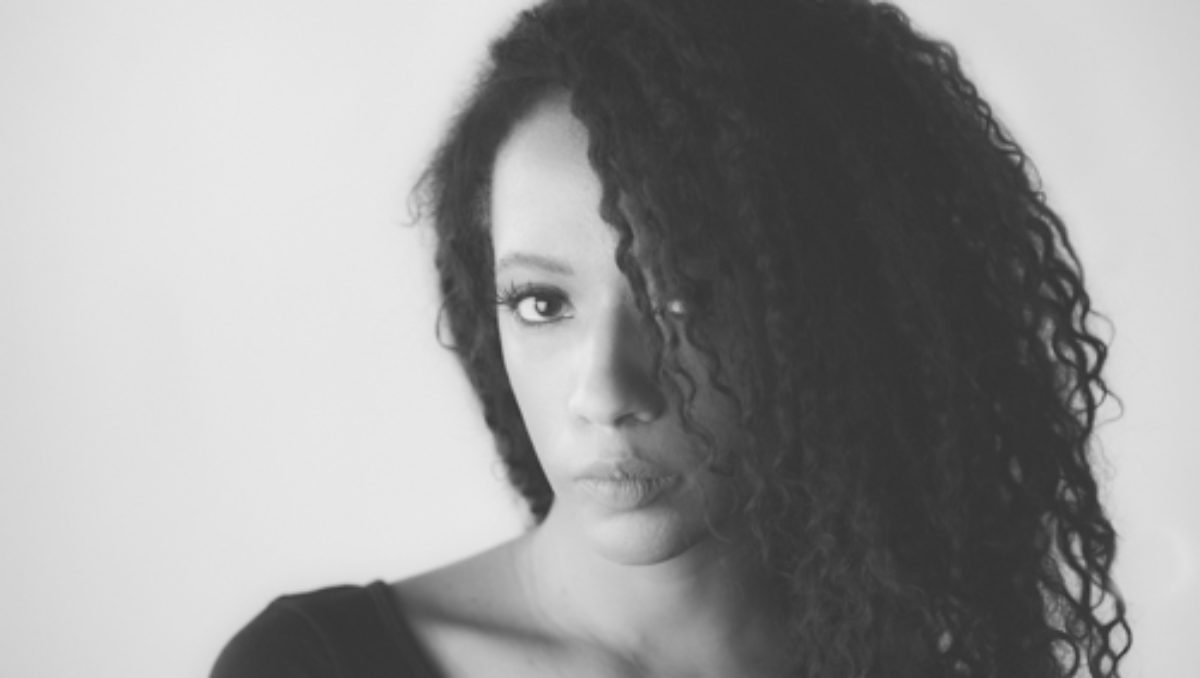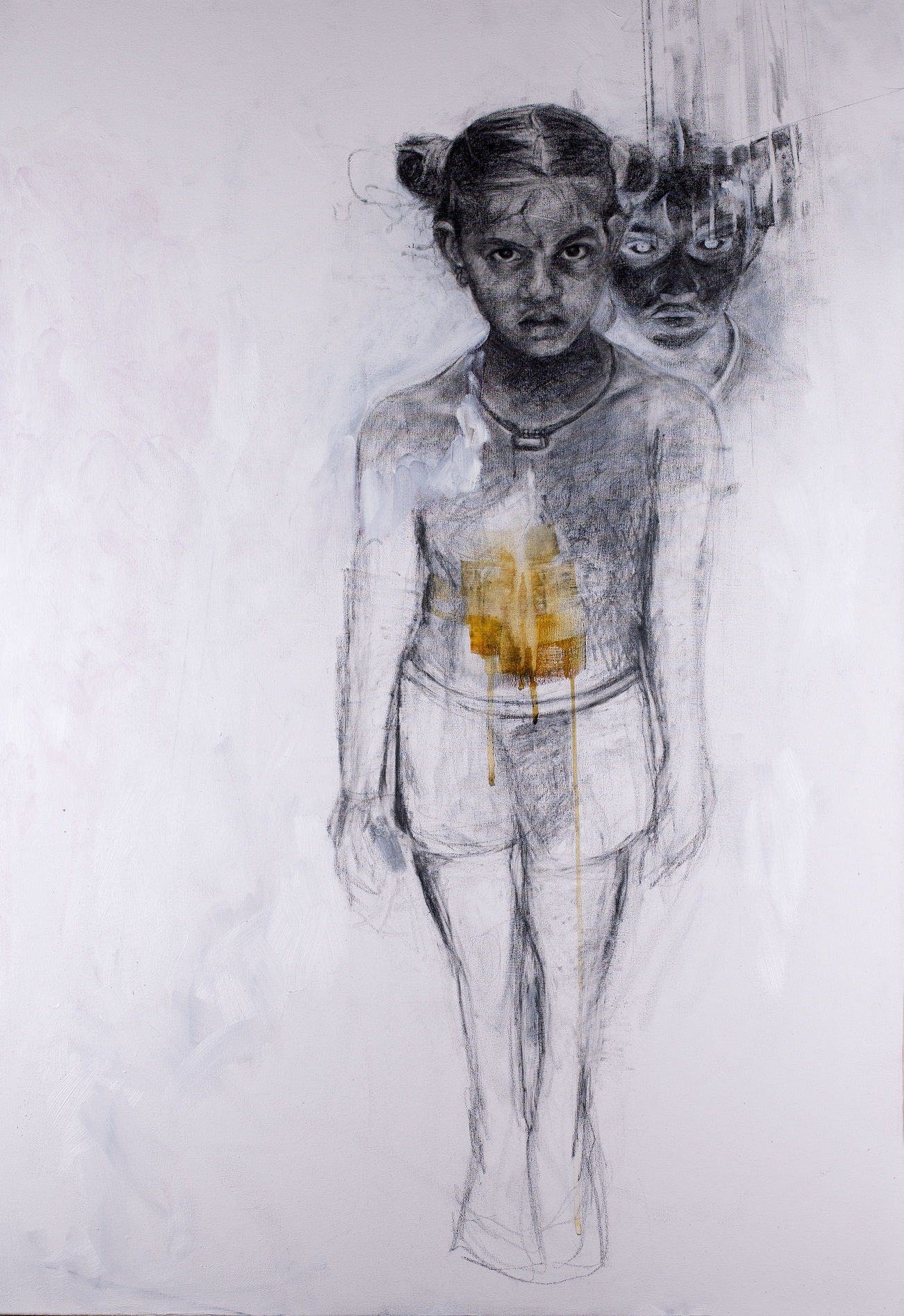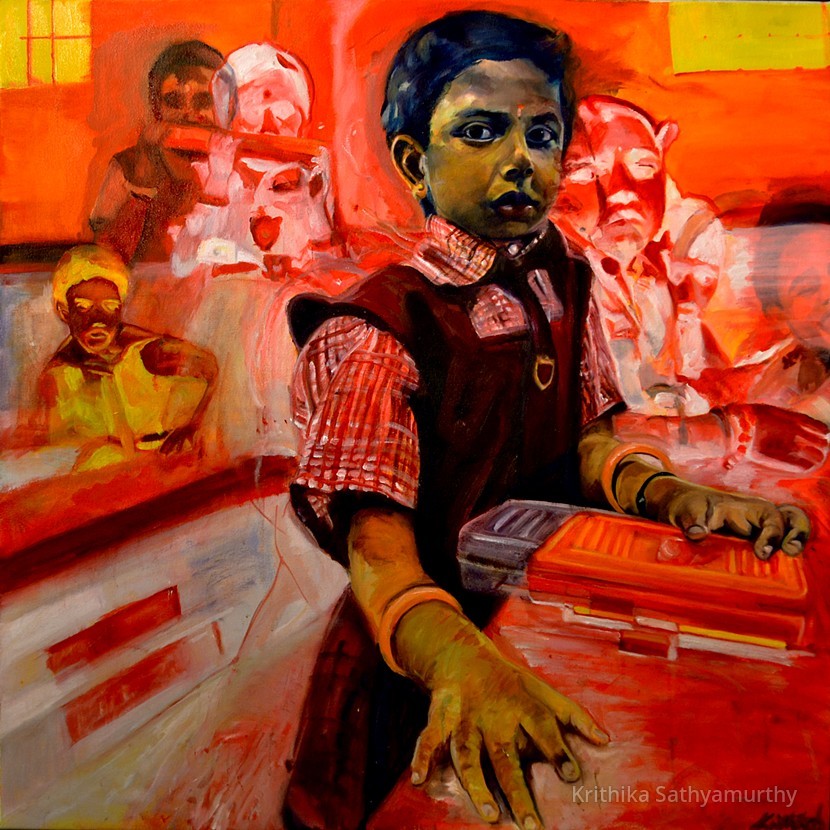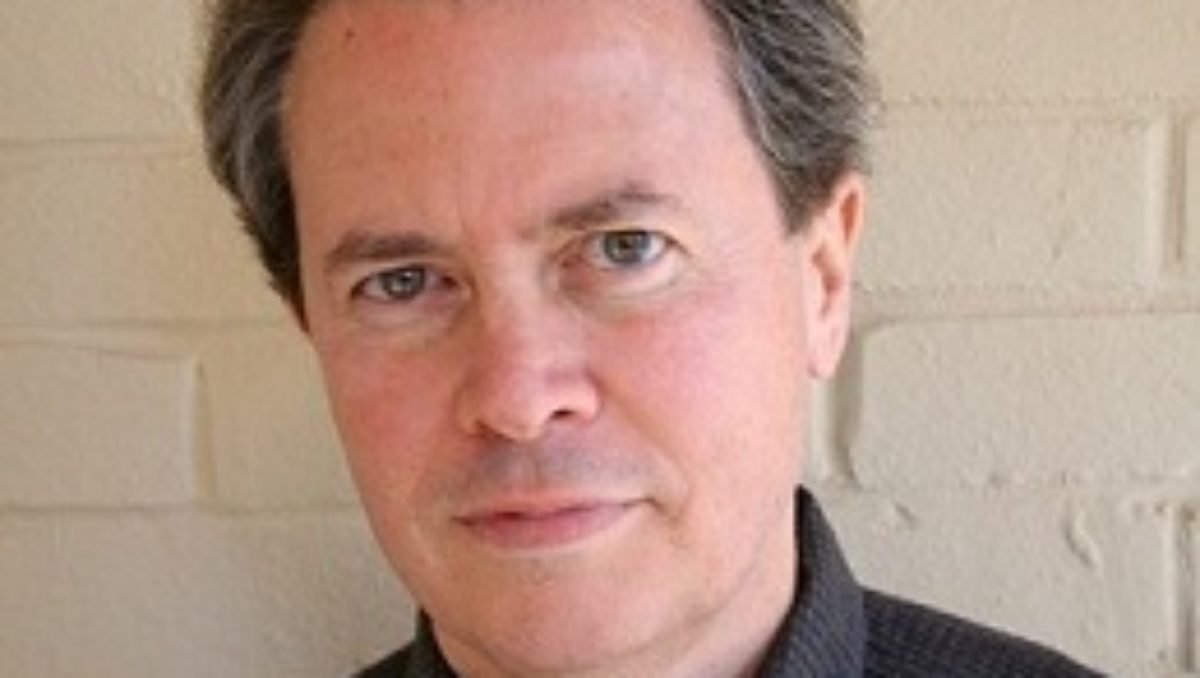FWR Monthly: July 2015
For this installment of our new monthly “mini-issues,” I wanted to present a small folio on a genre which seems to gain more and more attention, particularly among poets — the “photo-essay.” Because so much of our daily life has gone digital, it becomes harder not to primarily encounter the world through our sense of sight. And “seeing” isn’t easy. For the photographer, when a photo essay is being built, he or she must whittle down, sometimes from hundreds of photos, until the image is found; then he or she must find other images that create tension with that original image. This month’s Monthly will present you with two poet/photographers, Chris Abani and Rachel Eliza Griffiths, both of whom I believe are doing fascinating and challenging work through photography. And please read the interview I conducted with Rachel! Such wonderful answers. That said, have a look-see (ha, see what I did there), and thank you for reading.
~ Nathan McClain
Poetry Editor
ON THE PHOTOGRAPH: AN INTERVIEW
with Rachel Eliza Griffiths
GHOSTING, INVISIBILITY AND THE ERASURE OF PARTICULAR BODIES: A SPELL
by Chris Abani
Ghosting, Invisibility and the Erasure of Particular Bodies: A Spell by Chris Abani
Introduction by Poetry Editor Nathan McClain:
At our 20th annual Cave Canem Retreat last week, I learned that a camera, no matter how good a camera, is mechanical. This sounds like a simple statement, I know, but what it means is that a camera doesn’t see what you see; a camera only sees what’s in front of it. A “good shot” isn’t on account of owning a good camera. Our role, as poet and/or photographer, is not only learning to “see,” but also learning to frame what you “see” (so the camera also sees). This practice requires a fundamental understanding of image which, in either a photograph or a poem, is, or should be, our primary focus. “Every poem is essentially an image” and, according to Chris Abani (who I’ll paraphrase in great detail here), who recently sat with me and discussed photography, and image in particular, “every image [as, I hope, you’ll see] is composed of three parts: a striking visual image (which occupies the focal point), movement (which creates depth of field) and sound.” (In a photograph, sound is always implied because you can’t hear it). Understand that when Abani references a photograph, he is differentiating between a “photograph” and a “snapshot” to which, in our current dispensation, we are constantly exposed. Hello, Snapchat. Hello, Instagram. A “snapshot” is an image that has no connection to us beyond the representation of the moment; it holds nothing beyond the materials of its composition. It’s anecdotal. A “photograph,” conversely, is never a representation of life, as that would cause the image to be static, flat. It’s an image that reveals the limits of its individual material components and reaches beyond the frame. The photograph, the poem, is about invoking presence. The self is (and should be) implicated. We try to find apertures which are closed, so we can open them. This creates empathy because, to paraphrase Baldwin, “your suffering means something only inasmuch as someone else can connect their suffering to yours.” Our trauma creates an aperture for someone else’s trauma.
Abani was kind enough to provide us with a small photo essay. Originally, when I considered the photo essay, I thought “argument,” but it’s really a conversation. Persuasion (or rhetoric) functions in that it limits the frame for you. Framing, or positioning, conveys intent. When a photo essay is built, one whittles down until the image is found, and then images that create tension with other images. Enough narrative is provided to engage a viewer, but enough lyric space is left so other narrative and emotional possibilities are available for the image. A viewer leans into it…
__________
*
Fair warning, I am a tatterdemalion.
*
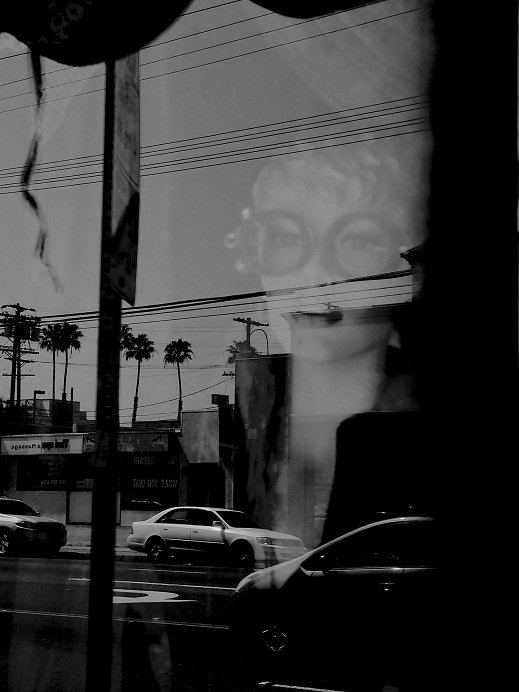
*
As in all meditations around photographs, words must take second place to the image, which should hold all the profundity, as words are mere facsimiles of the actual. Nonetheless.
*
Women, embodied and alive resist inscription. Not in the sense of striving toward or against, but rather in the sense of presence: the state of being present, a fact of body and all that derives from it. Women ARE.
*
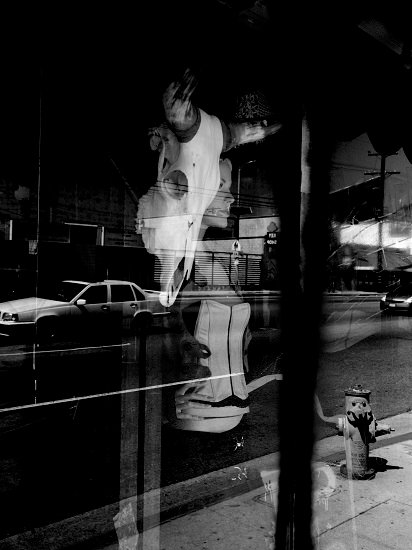
*
The masculine gaze attempts to temper women to desire, lust, hunger, and a need that makes men the center of the world. But women can’t be overwritten easily because we cannot overwrite what IS.
*
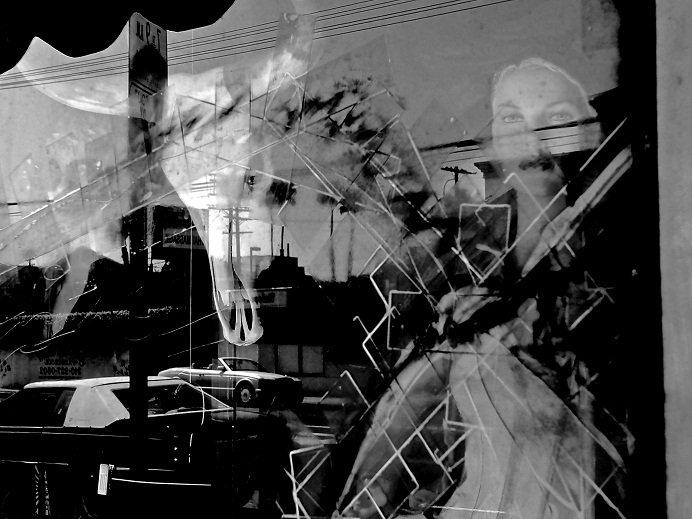
*
British sculptor Antony Gormely thinks of the human body as a “place of habitation.” He makes art by using his body, or the bodies of those who live in the areas his work will be shown. This art is a direct mold of their bodies, I think, in hope of locating how we inhabit bodies, since once the sculpture goes into the world, the audience inhabits them. This kind of site-specific installation is simultaneously mobile and resists easy inscription in this way.
*
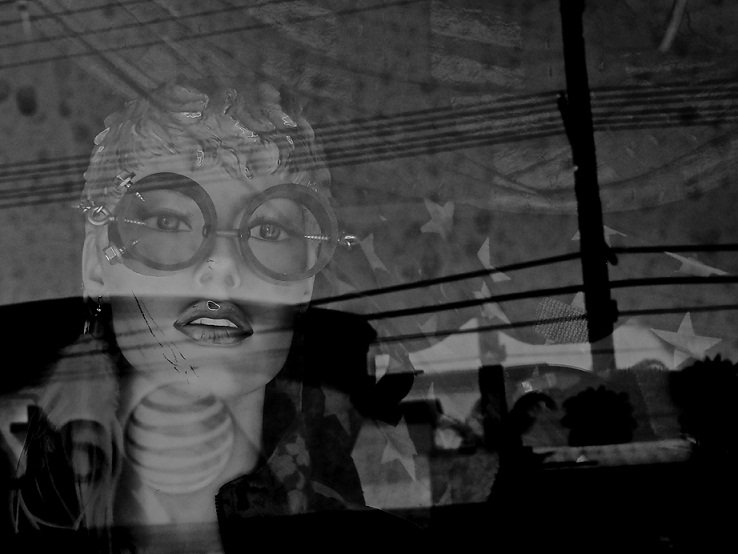
*
The masculine drive to shape women’s bodies to desire and need, one that can be magically harnessed to any object in order to magnify its appeal, requires an evacuation first. This may seem counter-intuitive but it isn’t – to make a woman with large breasts hypersexual, or to make blonde hair signify stupidity, or to make glasses signify smartness is to transform women into mannequins, to remove the self. And since this is impossible the fabrication begins on the outside, a way of shaping perception such that even the self inhabiting the body questions her own understanding of it.
*
Seeing this window installation in LA I was drawn to the mannequins. Since the conceit was the future, it saddened me to see that even in the future, even in a post-apocalyptic world, women are still positioned within the masculine gaze. The reflected consumer products, one of them a cell phone company logo lodged firmly in one mannequin’s throat, seemed to indicate a silence. The skulls, usually associated with hunters and masculine prowess when mounted, were further signs of inscription. And yet, there is something about these mannequins that made me think of Antony Gormely and I realized that what had happened here, by a curious trick of the light, of seeing, was that I was compelled to seek habitation in these bodies, to find myself in them. There was something in their positioning that invoked their presence, the fact of them, the possibility of them, and the negation of the act of patriarchy.
*
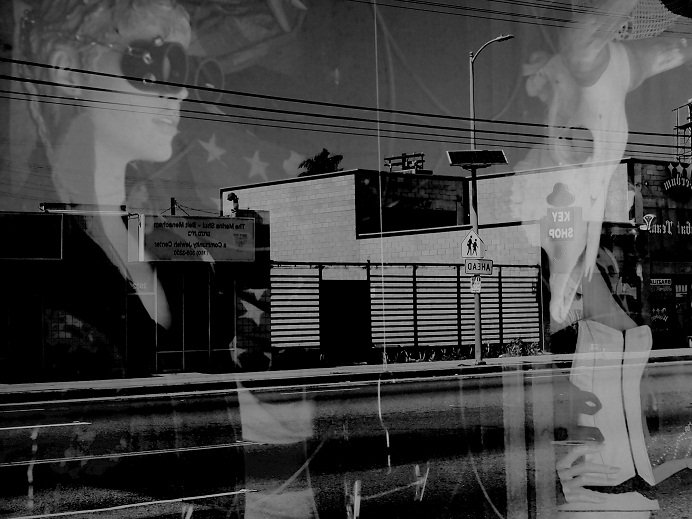
*
But the images must speak for themselves. I am, in this regard a tatterdemalion, which is to say you must not take my word for it. I am after all, a man.
- Published in Series
ON THE PHOTOGRAPH: AN INTERVIEW with Rachel Eliza Griffiths
from FWR Poetry Editor Nathan McClain:
While at Cave Canem, I had the opportunity to chat with, and interview, poet and photographer Rachel Eliza Griffiths on the functionality and nature of photography and, more specifically, how aspects of the gaze and engagement contribute to a photo’s overall work. Her responses were far too wonderful and in-depth to distill, so I’ve provided Rachel Eliza’s responses, in their entirety, for your perusal. Rachel Eliza, too, provided us with a photo essay, which I’ve embedded in her response, as I sense the two are in conversation.
A poem, or a photograph, after it leaves you, is a virus that exists in the world. It replicates itself and, despite its framing, it cannot be contained. My hope is that Rachel Eliza’s photos and responses affect, or maybe more so infect, you…
NM: How would you say the photograph directs the gaze in a way the poem may not?
REG: I want to be careful to not make any sweeping statements, as your questions are so interesting and fluid to me. I’ll think of these questions for years. I admit that I feel the photographer in me resisting my efforts to verbalize or theorize the parts of me where my visual alphabet works in terms of imagination and politics. There is obviously as much nuance within photography and photographers as there is amongst poets and the tools/language they employ to shape, light, and to shadow their work. For me, there are shared spaces between imagery and vocabulary and other spaces where neither can help, witness, direct, or translate the other.
The presence of tension and intuition, whether in a poem or photograph, is critical for me in terms of process. When I think of process, I think of my body and of its systems. How I experience my body, as I am writing, is distinct from the sensations I experience when I’m using my camera. For both, landscape – where I am and with whom and where, the specific geography – becomes literal, internal, spectral, exterior. I don’t resist these contradictions. I get away from squares, unless they are pages or viewfinders. For a while, all shapes are doors, stairs, and windows. After photographing, I feel my work in my muscles, my back, hips, and arms. They’re sore. When I write I have to remember my body. I look up and hours may have passed without me even getting up for a glass of water.
In a photograph, I have to meet myself as an “I” in ways that I’m unable to articulate in a poem. But I don’t see this as a failure. The mood or space where tension exists comes from the same vulnerability, the same power. In a poem the “I” is working at something, so interior, that the photograph can barely perceive it, much less reveal it in its entirety to my own gaze.
For example, many of my self-portraits included here incorporate blurring. If I take an image of myself and I seem too still in it I feel as if I’m dead somehow. I get freaked out. Blurring helps me see how spiritual I am and reminds of how the past, present, and future can function in a two-dimensional portrait of one’s self. I don’t necessarily need narrative but I often like to sense movement in the environment, which is also living and moving.
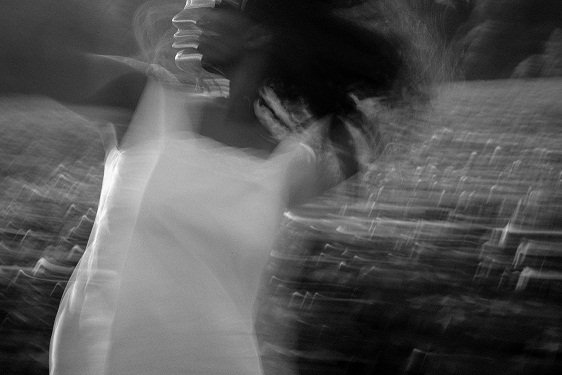
When I’m looking at myself I’m hoping for discovery. I accept the outside and reject the outside. I accept the inside and reject the inside. I use language and I subvert language. Texture, color, light, shadow, frame/composition, sound, absence, voices, and faces become surrogates for what I cannot say. Recently I began to incorporate my body in photographs. That space is difficult to metastasize, or offer in my poems because of how freighted and unstable language can be. I think of alchemy, authority and permission, and how those relate to photographers and to poets. Sometimes I think of the gaze and I think about beauty and desire and violence. I think about how a poem about my body might be received if it were placed next to an image of my body. I try to let the work say it because the work knows it better and more honestly than grammar. People will say a photograph does not lie but, of course, photographs lie too.
But photographs and poems also become glyphs – they’re 2D. I’m not. I have to push at them, break them, to give them bones and flaws and flesh that can outlive me. There is a relationship that must happen immediately, structurally, thematically, and psychologically between the poet and the reader. Mortality happens between the poet and reader. The photograph itself happens immediately and then, if the photograph is strong enough, it will reverberate and live, sometimes hidden for years, inside of the gaze where it was first experienced.
Time in a photograph also splices and freezes an experience in a way that I feel a strong poem can also transform its reader. For example, consider the past and the future. I don’t know if the present tense exists in photographs but it does, often, in poems. When I invoke the past or the future in a poem I don’t see it with the same lifespan a photograph holds. Photographers can photograph or intuit the future but the implication of doing that almost goes against the common intention of most images, which are snapshots, which is to convey what Reality is/was like. With the “likeness” being accurate enough to the real. Being ‘accurate’ in a poem has little value or meaning unless it is part of the poem’s truth. It is easier for us to accept a photograph or dismiss it as, ‘that’s not real’ in a way that does not happen easily in a strong poem. Poems make us believe in ways that photographs aren’t necessarily concerned with – and this calls into light the places where the air thins between these ideas.
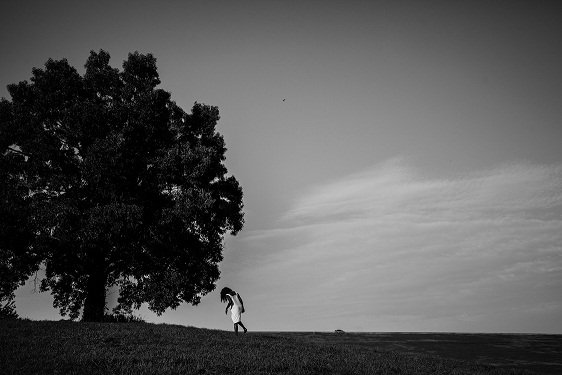
Our world is so visually conscious of itself. While certain types of cropping or manipulation, lack of credit, laws of fair use, etc. in a photograph can be egregious sites of outrage, manipulation in a photograph is usually not as averse to our reaction to feeling manipulated by a poet. Is there more at stake when we, in our roles as “readers”, are manipulated?
Most of the time we assume that the photograph we are seeing has been revised, edited. And a photographer is more likely to have a photograph plagiarized or appropriated (without much consequence) than a poem. Some photographers are okay with this because of how democracy, amongst photography, works in its contemporary republic. Most people would never quote or use a poet’s work without providing some attribution or credit. But photographers expect this and as such, there are photographers who make their living by selling ‘stock’ images. ‘Stock poetry’, wherever it appears, is usually derided. As viewers, we are more likely to be impressed and admire a skilled photographer’s manipulation of an image than we might necessarily be if we were to witness a certain type of cleverness or verbal pyrotechnics in a poet’s toolbox. We might be dismissive of that poet for being ‘experimental’ or ‘too much’ or find such dazzling attempts as distractions from the work itself.
There’s The Gaze too. I don’t have enough space to go into that! But reciprocity is part of this conversation. We must speak of what is private and public within the context of the gaze. What is authorized. What is banned. What is legislated and outlawed. Do we judge the photographer for immorality or ethical trespass in the same way we might apply such concepts to a poem or a poet? When a photographer has the opportunity to ‘take the shot’ (always this hyper-aggressive vocabulary of taking, shooting, capturing), what is at stake? What is at stake for a poet who gives voice to those who cannot speak? What is at stake for a photographer, who looks, makes visible the necessary moment, when the world will not see or would not see otherwise? What is at stake when the poet executes that identical gesture? How do we compare the notion of silence and speech when it occurs in either poem or photograph?
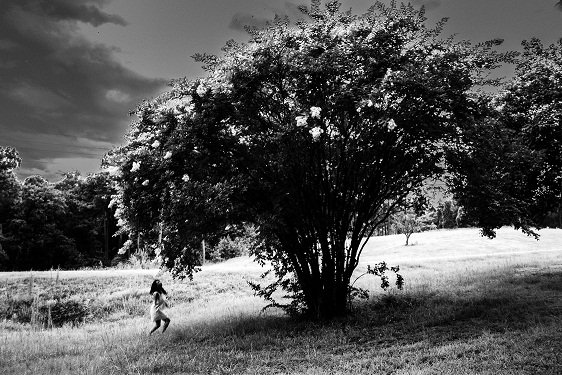
Depending on who is looking, the photographer is as much the object and subject as the production of the final image. For example, consider celebrity photographers whose celebrity will sometimes be noted and lauded before any actual attention is given to the work. I believe that this happens, but a bit differently, with poets. The notion of a photographer as ‘author’ can be as expansive as the poet’s task. But there are other elements to examine for both poet and photographer including accountability, anonymity, privilege, intention, politics, ethics, and of course, imagination. Again, it depends on the type of photographer. War photographers need different tools than underwater photographers or wedding photographers. I don’t have any judgment about this. I believe it’s about the way you feed your eyes, what you must look at and what you need to see and every wound of gray in between.
NM: Is there a way in which we engage with a photo that we do not with a poem?
REG: There are many ways! I think about this all of the time so I don’t have a static answer. We engage poems differently, even amongst ourselves, as readers of poetry. We assign value (and outrage) in dynamic terms when it comes to photography in ways we might not when we are reading. We engage photographs differently when they appear in museums, advertisements, family albums, or social media. Many of us are curating various narratives and lifelines with our ‘smart’ devices. There is also a global coherence that is happening now, irreversibly, because of technology. This is complicated, revolutionary, amazing, and dangerous.
If I read a poem written in English it possesses a distinct fluency because my first language is English. In which language(s) do we experience photographs? Many of my favorite photographers are not American. But how can you look at photograph and immediately discern its author’s identity or where that photographer is from? How does the concept of universality relate to a photograph beyond the image itself and for its own sake?
With poems, it’s interesting. If I’m reading a poem that was originally written in French, I’m likely to look at several translations or ask friends for suggestions for the most informed version. I’ll be looking for the best version, the closest version. I have to do more work because I want to experience the language of the poem as closely to its original text as possible. All translations are not equal but how would that notion manifest in photography?
Intimacy is also something I often think about in relationship to both poetry and photography. The intimacy I might share in a photograph is neither identical nor lateral to the intimacy I share in a poem. Both forms engage different threads of the gaze. These forms are often contradictory in relation to the acceptance or rejection of the gaze. The shapes of the gaze in either medium are relative to my content and intention. For me, any attempt to answer this question only provokes questions. Who is the We? How do we, as individuals and public citizens, understand, maintain, and define ‘literacy’? Personally, I’ve had numerous experiences where there is concerned.
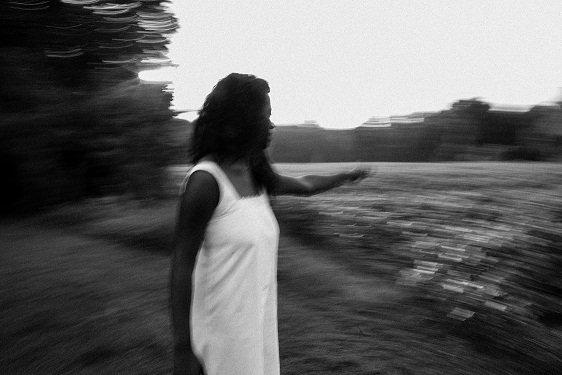
Photography’s functions are not identical to poetry’s processes and forms. Perhaps poetry and photography are fraternal twins. If I look at a photographer’s work my dialogue with that work happens in a matter of seconds. I find an opening, a narrative (however fragmented or fractured), a visual seduction or rhythm, an emotion that is persistent. Visceral. I find what fails in its complete articulation to be verbal or knowable.
TWO POEMS by Sierra Golden
LIGHT BOAT
n. A small fishing boat equipped with several 1,000-watt light bulbs hung from aluminum shades to attract squid to commercial fishing grounds.
Jesse isn’t really a pirate, but the Coast Guard thinks so when he calls to say he found a body. It doesn’t matter that she’s still alive, so cold she stopped shivering, blue fat of her naked body waxy and blooming red patches where his hands grabbed and hauled her from the water. He stands over her with a filet knife, slowly honing the blade as he waits for Search and Rescue. The glassy eyes of a dead tuna stare up from the galley counter. At dusk, Jesse flicks on the squid lights. When the uniforms arrive, they question Jesse, but never tell him who she is. Taking her away, the Lifeboat’s white wake is brilliant in the night. Days later, Jesse reads the story of an obese woman slipping out of bed at Johnson Memorial. She shed a hospital issued flannel gown and left nothing more, not even a whisper of footprints on the white tile floor. Jesse lights up a mass of squid and imagines her bare bottom shining under the moon as she waltzed herself into the slate-gray ocean and floated away. He knows how she must have longed for the cradling dark. He watches ruddy bodies pulse in the artificial bright, the net dropping around them like a curtain.
NET WORK
Shuttles flick through diamond-shaped windows.
Just fingers flash, bending the twine in stair steps up and down cut edges.
Their pockets full of hooks and flagging tape, men mend the net.
Jim recalls branding cattle as a kid in North Dakota, winter cold just lifted,
calves struggling in mud before the prairie bloomed, withered in summer heat.
Playing cowboy now, he says he shot coyotes and Indians off his dad’s land.
Face deadly straight, you only know he’s lying when his fingers stutter,
stick, the tiny knot coming up slack. Just one unraveled compromises the delicate
lift and pull of meshes under stress. I’ve seen whole seams split from end to end.
He knows love knots pull tighter under pressure, stronger than the lines used to tie them.
He starts talking about his grandmother with Alzheimer’s. Each winter she thinks
every day for a week is Christmas. Last year she fell in two feet of snow.
Feeding the horses, hay in her hands, the wind at ten below, she lay crying
until Jim’s grandfather found her. She didn’t recognize him,
but knew love when it grabbed her, pushing back the terror.
Jim joins two lines with overhand knots, sliding them one on top of the other,
pulling for tension. Sometimes the line snaps in his swollen fingers. His hands ache.
He cracks his knuckles, asks the boys if they’re ready for a beer, remembering his first.
At fifteen he drank Rainier, bittersweet scent biting his nose while he sipped,
making him crave pancakes all night. He didn’t know why until he remembered hunting
trips when he was five and six, Brown Betty, the old flat top stove at his uncle’s cabin.
Uncle Joe would tinker the diesel flame into smothering heat, sizzle of bacon
while Jim’s dad poured Hamm’s in the pancake batter, saying, Our little secret.
Holding a burnt handled spatula, he’d flip white beer cakes mid-air.
Outside the web locker, Jim’s crew chuckles, calls it a day, each popping a beer tab.
At home their fingers twitch all night, tie imaginary hitches, sheet bends,
loop knots, a bowline on a bight. Jim dreams of the whole net flexing,
all the pearl-sized knots shrunk and snug, rippling in the current.
- Published in Series
TWO SHORT STORIES by Kevin McIlvoy
The Luthier’s mother’s mouth’s openness
The Luthier’s mother’s mouth’s openness, her hands’ finger’s
tremblings, her red hair’s fires’ warnings. It’s what you saw if you
were making your last visit to her ever. You were the Luthier’s
mother’s Possession when you walked into her son’s guitars’
home, in which son and mother also lived together in one room.
Inside their home’s heart’s sounds: the tub’s faucet’s dripping’s
splashings and the refrigerator’s coils’ hymning humming and the
clock’s hands’ frettings and the floorboards’ one warped
floorboard’s creaking. It felt like everything you heard was also
hearing everything else, that nothing resting there fully rested.
I know all this because I lived there once with an older sister
named Bender. She was the one who saw after me. Ran away.
And no word again from her. My feet drummed the dead forest, I
heard my face in the face, and from hunger I prayed inside
the box’s light. I felt my boy’s soul displace the small body of water. I
didn’t like that they had stopped that splashing sound.
I was the Luthier’s mother’s first husband’s second child by what
people called The Widow’s Previous Marriage. The only child left, I
was an extraneous adverb when my father, the verb of the family,
died. The Luthier, who is the second son, is the Luthier’s mother’s
other.
I, too, was a Luthier though not as skilled as he, The Luthier’s
Luthier. Call them “Sorrow’s sorrows,” the guitars I made. Call his
“Rapture’s Raptures.” He was my teacher. Twice his age, I was the
Luthier’s mother’s son’s favorite pupil. I was there to learn how to
finish dreadnaughts that would sell fast. Banking on his
reputation, I would claim that he made them.
Once there was one he named Elizabeth Cotton. It is bad luck to
name a bad guitar. It is good luck to name a good. He had never
made one better. “Liz,” he said, at the end, “this will not hurt.”
And he was gentle. “Liz,” he said, “you’re going to like this.”
He whispered into her soundhole, “Liz, baby, what is it?” and
listened for her answer. The Luthier and I never talked with the
affection resounding in the Luthier’s guitar’s conversations with
the Luthier. There is a love that is a reflection of love’s reflection.
There is a frame inside the form, there is a vice you use to force
the edges to bind. There is the floating or flying seed still in the
grain. The stars arisen, the kingdoms fallen, the green, the void;
you touch the tuning fork across the skin of the sky, snow, rain
still in the sound. Moonlight. Sun. Nests in the limbs, and in the
nests the hungering young. You loosen the vice, and you are done.
“You fixed the tub?” I asked. The Luthier’s mother answered for
him: “Fixed.” They had even taken the duct tape off the Hot and
Cold handles. (It broke my heart, that repair.) The Luthier said,
“Finished.”
I asked if I could take her. Together, the Luthier and I put her in
the case.
I left. She went with me everywhere I went. Forty-one years ago
today.
At dusk, as always, Bender sang to us
At dusk, as always, Bender sang to our congregation, silver hair
greasing her blouse, and silver muffling the toes of her boots.
When we were grade-school children, she and I liked duct-tape.
We liked it like you could never believe. Our favorite thing to steal
from the corner store was that silver coil. The way it ripped
across, how it stretched over. It gripped!
She stood on the white twenty-gallon empty drum, her bootheels
burning the plastic, her tempo uneven. We were a communion of
over a dozen church-bums who loved her and were frightened by
her hawk-at-the-tree-crown and hawk-on-the-glide shoulders and
head, her wings at her sides, her hands palms out, fingers curled
up.
We once duct-taped a picture of our father, who was dying in the
Simic State Penitentiary hospital, to a globe our aunt Horror sent
whose name was actually Hortense. He clung to the deep South.
He spun fast without flying off. When it slowed down, his head did
a half-turn on his neck, then a turn back by half that. We tore the
thing apart, duct-taped the entire planet, kicked it anywhere we
wanted. Dented part of Asia and most of Antarctica. Had to re-
tape.
Bender could see me. She looked at me. Hungry, we both had
listened to the God-hype you had to swallow in order to be
allowed to eat the soup at this mission. The tables were set in the
chapel that once had a God’s-eye skylight. Through a screen of
sloppy black paint, full moonlight smudged her gaunt face and
temples, her silvery upper lip and jaw.
She sang, Hey now. Hey. That’s what I feel. How about you?
We were all sick to death from eating so much God venom. This
serpent’s voice tasted good. Her drumming bowed us lower over
our bowls, our spoons witching the broth.
When she turned nine, Bender and I duct-taped her birthday cake
– the wrong flavor and no icing – taped the candles, taped our
cousin’s bicycle handles, seat, tires, chrome fenders, who said he
was forced to come to the birthday party. We attached our
stepmother Dillo’s hands to her knees because she napped curled
up drunk, which was not birthday-appropriate we felt. For her
convenience, we taped her whipping switch, which we had taped
and broken and overtaped, to her right claw.
Bender’s voice scraped her own clogged reed:
Hey now. Hey. That’s what I feel. How about you?
Of all hours, Bender should bless ours. Of all hungers she should
solve them here.
You feel it? You feel it. You feel it too.
Our congregation lightly hammered our tables in tune with her
coffin-lid-thumping boot.
Sixty-one years earlier, our mother told me nothing and no one
could save my sister, that some darkness sings only darkness.
You never ask me about me, Bender said.
O, Bender, I answered my sister-sawyer who had only survived
her own self-killings because she sang.
You never ask me about me, she said again, though she knew I
was afraid to hear her answer.
When she laughed she sounded forgiving.
Need duct tape? she asked.
I had become a musician along my way. I injured and reinjured my
guitar until we both were near dead. Kicked out of the band, I
marked it SOLD but kept it, slept with it, dreamed there was room
for me in its shell.
I did. I needed some.
- Published in Series
TWO POEMS by Jennifer Givhan
NOCTURNE
Then I remembered: Mama wasn’t gone but safe, in her bed, turning in sleep. It was I who went away—from Chopin in the bones, palms heavy with dates like dark purple fingers reaching toward sand, toward fruit sickly sweet outside Mama’s bedroom window turned mine, her girlhood unloosed in mine, on the ground, rotting yellow. But skyward: a salted moon, a brittle sound, a bed of headstone with its high- pitched calling like a night animal hunting, no, a night animal hunted, in distress and calling, but the mama’s turned deaf—no, the mama’s the one yowling in the night shrub, taken, only the predator’s not the barn-owl. The predator’s prickling gooseflesh of the chest turned to full-fledged breasts and shared with boys, too early to understand how it would haunt into her parent years… into a time her children would come searching for her in bed like the icehouse in town before it closed, the ice inside too cold and melted too quickly into a time she knows will be coming when her children search in other beds and find instead a field, where the road dead ends into the basin, nothing but high grass lit by a pale streetlight… Mama would turn on the music, sometimes she played her flute and I would dance. Growing up I heard stories of Mama’s life but it never occurred to me she was alive for anyone but me, her daughter. I understand now how she needed me—no, how she made music of me and I was rescuing her from dark rooms and nights darkly lit, the slapping hands and terrible hands and the history of genes that replicate themselves in the smallest versions of ourselves: we play a piece of music listening, not for time, though time is constant, but for something deep in the belly… for Mama, who couldn’t keep us from aching, no—who gave us song as gesture for pain.
SCIENTIFIC BALLOON
September 13th, a bright diamond-shaped light appeared in the sky
above all of central New Mexico
I.
I’ve found the warmth Mama left in her bed
when she rose to watch the sun making pink sheets
of clouds through her window.
The balloon is risen above earth’s atmosphere
collecting celestial gamma rays
where our imperfect sight cannot reach
and then the sun is too bright;
she closes her eyes, and I can tell
she’s imagining herself in that unmanned
balloon. I want to say the instrument is already
in you, cosmic & infinitesimal… but she moves
her face behind a curtain, the moment arrives
and is gone. That light, her light,
while it was rising, lent meaning to the sky.
II.
So we continue—the birds with their funny
pointed beaks, their ancient flapping. A child
born to rescue us. In Sunday mass
I would fix my gaze on Mary in her blues,
Mary prone at his bloody feet as I sang we will soar
but God must have known what I meant.
It’s not as if the sky is empty for me now—
even on the coldest mornings
in New Mexico, they rise
as lanterns in our land of enchantment
they rise, in jewel-tones or flag
stripes, in the oldest human-carrying
flight, with their chambers of air, they rise, burning
air into their bright billows.
My favorite resembles a sparrow.
Issue 7 Contents NEXT: Yellowed by Steven D. Schroeder
WATER AND ISLAND by Jennifer Sperry Steinorth
pressed between blue pages a few hours
on our old boat which is not ours my leg
over the bow you in the stern with the kids
in the stern I’m reading poems you’re not
the sky a depression of noon wilting
on our way back from the island we did not
reach the boys drag bits of pita through
some dip argue the last cola we are not
arguing now I said what I thought
you said what you thought and I won it’s not
nice what do you want I said and you don’t know
it’s been so long so long since I even
wondered you said pinned here in this book almost
no wind none the water glass like old glass
that much ripple that much distortion two
small sailboats go by portside one red-hulled
the other white it’s not our boat your
father’s gone days don’t get more beautiful
than this the white hazed blue a few big clouds
we could not stand it any bluer and
the land rolls up away the glass the glass
reflects the sky thank god thank god we
cannot see ourselves for home we’re headed
nothing violent nothing shattered
glass the surface just before us always
smooth always untouched and when we
mar it it repairs itself with no help from us
Issue 7 Contents NEXT: Two Poems by Corey Van Landingham
FOUR POEMS by Christopher Kempf
SLEDDING AT HARDING MEMORIAL
It was how humans, the future
will say, entertained
themselves those last centuries
winter existed. Cribs
of dogwood racked
in the side yard. Jarred
fruit. Fat
in our snowsuits, my sister
& I climbed
the huge steps & pressed
our faces to the gate's
wrought bars. Beyond them
the President, we understood, slept
beside his wife in the hard earth
of Ohio. Here,
in 1923, street
after street of our hometown trimmed
in black felt, his funeral
train trundled at last to a stop. The body, blocked
in ice since California, face
sewn shut, sunk
slowly in its chamber & later
that evening the team
of men whose job it was rose
from their dinners & lifted
into place the great
slab, something
paleolithic laid
at the spot where history— its grand
ambition in ruins— wandered
away to die. On Delaware
our father watched us
from the base of the hill. I held
my sister in my legs & allowed
the inertia of the spinning earth
to work. Wind
lashed our faces. The formed
plastic of the sled scored
the ground behind us & after
we had stopped our father, become
suddenly a beast in harness, hauled us
back. The last
of the presidential tombs towered
above us, its roughly
classical columns obscured
by the shifting snow. By extracting
for their monuments only
the finest of stone, Spengler
argues, Egyptian
architects expressed through craft their culture's
solemn & meticulous care
for the future. Therefore
the past. Pyramids
of limestone sliding
into place behind men bent
forward. Father
tying our sled to his own. Low
against the earth, he turned us
to the edge & together, our train
of blood & plastic lashed
tight against what would come— the sudden
thaw, our long-
unlooked for ruin— we began
again the descent.
OREGON TRAIL
Before I was a man I was a man
made of pixels, a glittering
column of dots drawn
west across the earth by word
of land limitless & given
freely to he who worked it. First,
on the line assigned, I typed
the names of my children, fitted
our wagon with axle grease & for each
child a change of clothing. I followed
the pathway day
by day across Nebraska, my rations
set to filling, my four
head of oxen walking
steady. Spirits
were high. To hunt,
the instructions said, enter
'BANG' as quickly as possible. I slaughtered,
with my deft spelling, elk
& buffalo, whole
herds of antelope & my family
sucked on the bones til Bridger. Beyond
our school's computer lab that month, McVeigh's
Ryder truck erupted in a parking lot somewhere
we had never heard of, its twentyfoot
fuse looping cartoon
-like, I imagined, to the packed
wagon. Back
in 1855, miners
with the Lupton party charged
at midnight a tribe of Takelma camping
near the trail. They tore
women from their husbands, from
the arms of their mothers cut
the littles one & ran
them through Bowie
knife spine to hilt. To hunt,
the instructions said, enter. We bent
our faces to the screen, keyed
the letters again
& again & let
the meat of the pronghorn rot
in our wagons. We contracted
typhoid, forded
the river at the South Pass & were dragged
in the mad flux under. Amy
has drowned. Dad
has measles. We marched
with our diseases seaward & wrote, when at last
we succumbed to snakebite, our tiny
pixels flickering in the dusk somewhere
at the edge of the West, wrote
there our own
epitaphs on the line provided. Behind us
on the map our path
wound like a fuse across the continent. Congratulations
the game said. Press
SPACE to continue.
AT MY SISTER'S WEDDING, I DANCE THE DANCE OF SWINE
In the country my kinfolk
came from, shame— ancientest
of passions— had
still in the old years its uses. If you, as I am,
were for instance eldest
of your family's siblings & if
on the day of your sister's marriage you remained
spouseless still, given
rather to the Black Forest's fruitless
wastes & to brooding, you
danced also the hog's tarantella. The trough
is wheeled to the floor. My father's
family, four
centuries in Ohio, lines
the stage waiting
for the past's last
lingering ritual. My sister
smiles. Her white
dress is everything
that I, imagining it, had imagined it
would be & she, inside it,
is for the last time
the small & wiggling thing I held
in the county hospital. Slop,
the trough means. That she
is the fairytale daughter gone
tonight to some dark country of love
& dying & that I
am thirty & single. Still
my family's name awaits
in me its future. In Luke, Legion— demon
of many parts— plunges
to the sea snared
in a herd of pigs. My pants
are rolled to my knees. My feet
work nimbly the mix
of mud & wine. Once
we played, Amy
& I, wife
& husband in our mother's
kitchen. I admit
it's the closest I've been to living
with a woman. Once,
in the old days, angered
by the pride of humans, the brute gods dropped
among us one
of those chthonic monsters myth
is crowded with. This
was a boar, the story explains, sated
only by the blood of children & if,
as I was once, you
also were a man you mustered
with your people each
autumn to slaughter
over & over the cloven-
hoofed hog. The trough
rocks beneath me. The mud, color
of shit, is sweeter
than you would believe. My people,
who love me, are just.
PACIFIC STANDARD
Against which, I mean, we
for the first time sounded
ourselves & were found
wanting. What
else could we do then but spread
to every recalcitrant corner we carved
from sandstone & Sioux? Sic. It's
craved I meant, as Magellan,
who named the thing, sailing
around the Cape craved
home. The hushed
waters he thought
he saw, I see
nowhere tonight in the rising white-
capped combers off Pacifica. Pax
facere. To make, Magellan
believed, peaceful. To find
oneself at the edge
of the continent for the first time, as I
did at thirty, & to forget this
hour has happened almost everywhere. That men
for centuries scattered
their sicknesses before them like seed. That we
who shadowed gold to the coast confronted
only then a phenomenon beyond
our capacity for destruction. Something
like a violence utterly
other— the tumbling
scud. The seastack
& crag crumbling like what
do you know of power? How
can you not look away? Where
I am from, everyone
I know is asleep.
Issue 7 Contents NEXT: Two Poems by Jennifer Givhan
YELLOWED by Steven D. Schroeder
The shade we named sidewinder
fang hung on a signpost
at the main-gate lookout tower—
another, tree die-off, we newsprinted
into leaflets about how far
until the next water supply.
None on spyglass lenses could filter
the color of a highway,
color of highrises over highway,
moonrise color over both.
But we tried, oh yes, we tried,
and what thanks did we get?
Trace of desolation we made
sandstorm around the shantytown
outskirts, light warning
light perimeter fence around
each rebel’s house. Though we did it
for their own good, the restless
chased westward color,
color of piston strokes, of coastline
close by. When dizziness and nausea
poured from the ears and pores
of runaways who planned
a breakout for the wasteland,
when sulfur or suffer bubbled up
hip-deep as wet cement,
it built character. At their age,
we too had believed in the color
with no border, with no shudder,
nonstop color. Because we said so
was why outsideresque and two types
of worry and wait wait wait
replaced those other crayons.
Who else would think of the children?
Our littlest ones, who left us
last, were the color that represented
open, mountaintop color,
color that meant
Issue 7 Contents NEXT: Origin of Glass by Marcelo Hernandez Castillo
ARTWORK by Krithika Sathyamurthy
- Published in Uncategorized
TWO POEMS by Airea D. Matthews
SEXTON TEXTS ON INDEPENDENCE DAY
Sat. July 3, 8:14 am (1/2) Because there was no other place I went home away from the scene of crazy-making senses came back before dawn in heavy July Sat. July 3, 8:15 am (2/2) my purse wide, thighs wet keys set down bedroom bound where one child also sleeps. Tiptoed as if a strange thief. Thought of my blotted out x’s— for this is the mind’s prison not a playground Sat. July 3, 10:31 am Sorry. Fell asleep reading Rimbaud. Same dress from the night before once I would have thought nothing of this. Today I feel like Gomer before Hosea chose her. Maybe I will conjure Jezebel or Tamar through the oracle. They were thrown into Hell, too Sat., July 3, 10:45 am I am rarely alone but the children, those little muses, have left to wander. Recall my dream now: dead deer mice in the garage, albino possums, ancient doors Sat., July 3, 11:15 am If I draw my blinds tightly enough sunlight loiters smoky dust begs to be let in like a Maine Coon in Brooklyn, outside double panes, in the throes of heat Mon., July 4, 7:23 am Morning. Ants run errands. My kitchen floor finds them second-line marching to crumbs tri-sected bodies shouldering scraps twice their size, such scattered strength! Mon., July 4, 7:52 am (2/2) Gather or Scatter: ants are Titans, Atlas, sky vaulters! I made that up, but do you get it? Mon., July 4, 7:51 am (1/2)Foragers are dumb muscles packing meal lumps fallen from some child’s grubby hands, not even for themselves. Long live the queen! Nobles eat well & often. Social orders exist in every world on every back Thurs, Aug. 1, 10:49 am (2/2) Her son rides up and down my cul-de-sac to drown out his mother’s yell. He waves to me. A package comes. I must sign. . . Thurs, Aug. 1, 11:01 am My fingers still smell like last night’s spent seed. I wonder if he has washed me off. Watercolor, Watercolor Thurs, Aug, 1, 10:47 am (1/2) a distant droning, it’s all grizzled buzz one neighbor lives in his shed sawing wood for a project he won’t finish. Outside, a Jamaican lady screams to her estranged lover, “I don’t know you! Ya’ come to m’door everyday beggin’.” Fri, Aug. 2, 12:01 am A lifetime of such small reminders A lifetime of blotted outs coming on or in. This fucking hunger! This fucking! Fri, Aug. 2, 12:07 am Should have gone to live in Amsterdam and had mixed-up, kinky-haired babies Fri, Aug. 2, 12:15 am Strangers would call you ‘mammy’ for taking your tiny joys public. This is the small life with long days in it & nothing to force clock hands closer Fri, Aug 2, 6:41 am (2/2) around the block. Faces not plumped or juvedermed or botoxed, yet all that holds back a soul? skeleton squeezed under wrinkling corsets Fri, Aug 2, 6:39 am (1/2) Every here same old crows, same ruined perches. Crones with young lovers and that man who drags his dull wife’s fat dog while he jogs
SEXTON TEXTS DURING POLAR VORTEX
Thurs., Jan. 19, 3:18 pm “Let us eat air, rock, coal, iron. Turn, my hungers.”-Rimbaud Thurs., Jan. 19, 4:01 pm Meanwhile, I’m trying. God knows. But mother unearthed each small bloodmain under her gauzed wrists. She fought a strange compulsion to press her mouth against her right pulse, taste the throbbing veiny eels her crooked lovers forsook drink from blind lakes of their leaving, undo their digging Thurs., Jan. 19, 4:32 pm (1/2)brick ledge, scarp fault no matter how much silt I packed into the hole, no matter... Thurs., Jan. 19, 4:33 pm (2/2) Trenches never fill never unslope else they cease being soldier’s shallow shelter Sat., Jan. 21, 7:17 am Ice storms, splintering crystals, of course. Today, everything wheels and bone touch, every slick black lies under rock salt Sat., Jan. 21, 8:01 am (1/5) Every day, my father fell six feet into a vat of tar. Burned his neck, ankles, veins. We saw his viscous shoeprints blanched blisters and salve. Hours after, when he touched any door- knob, steam rose from the brass. Sat., Jan. 21, 8:03 am (3/5) Recall he wanted to go home, meaning, maybe, Sat., Jan. 21, 8:02 am (2/5) He died for the last time on a Monday, or Tuesday or Wednesday or was it Thursday or Friday? Sat., Jan. 21, 8:06 am (5/5) point is: he died at some point during some week Sat., Jan. 21, 8:05 am (4/5) back to tar streets
Issue 7 Contents NEXT: Failure by Glen Pourciau
FAILURE by Glen Pourciau
I’d been holed up with a new project, and it seemed time to get out and breathe some fresh air and talk to people, an outcome that the solitary nature of my work sometimes led me to desire more than dread. I’d received an email about an opening reception at an art gallery, the owners of which were two of the friendliest people I’d ever met, and I was an acquaintance of a friend of a friend of the artist and had been to two openings for this same artist at this same gallery before and had seen this acquaintance at both of them. I planned on speaking with him at the opening about my project, and I liked the idea that I wouldn’t see him again for two or three years and could therefore minimize the effect of any adverse reactions to whatever I said.
I arrived about an hour after the opening began, hoping to reduce distractions by giving my acquaintance enough time to view the show. The artist was a specialist in geometric shapes, mainly triangles, trapezoids, and parallelograms, painted in a variety of bright colors and floating against an abstract background that suggested a brooding, subdued turbulence, an occasional gnarly, dissonant tree root bursting through the surface as if hurled by destiny. I scoped out the crowd, an impressive turnout, the usual buzz and nodding and handshaking and knowing laughter. I didn’t feel at ease, one side of the room already rising and spilling me toward the door, the floor on the verge of grabbing me by the leg and yanking me outside, you don’t belong here, leave and nobody will get hurt. The art did nothing at all for me, except for the tree roots, which appeared to have come from another dimension and aroused an almost painful urge to lift the frame or remove it from the wall and check the back to see if some design or pattern could be found there that would alter the context of the front side, and if the front side, seen in this new and broader context, would again reverse you to the back of the canvas, and so on, a type of narrative rotation that would intentionally undermine the geometry on its face. One of the gallery owners approached me, which she never failed to do, and she actually seemed glad that I’d come, though I’d never bought anything from the gallery and knew her gladness must have been limited to such an extent that it barely existed, and who could blame her, yet her face showed nothing but good will. Where does her good will come from? I wondered. I couldn’t imagine how she could think I was worthy of her welcome, worthy of her welcome, worthy of her welcome. As I was saying how good it was to see her, a well-dressed woman walked up from behind me and she greeted her as warmly as she had me and, not wanting to exhaust her kindness, I moved on, deeper into the front end of the L-shaped gallery, and continued to the elbow of the L, where you could inform a staff member if you wanted to buy a painting. Glasses of wine were also available in the elbow, but I turned away from the wine, fearing that even a small amount would trigger avalanches of verbosity.
Sure enough my acquaintance, whom I believed was still a friend of a friend of the artist, did happen to be in attendance and was standing just on the other side of the elbow, though I couldn’t be sure if this chain of personal connections remained unbroken because the artist and the friend of the artist were both rumored to be insane, at least intermittently, and prone to tirades against real and imagined enemies. Whatever the case, my acquaintance was laughing at or with a slender man who leaned in and blabbed a few words that had an edge, that caused my acquaintance to flinch and grimace as the man departed. I saw it as an opportunity to stroll up and greet him, possibly taking advantage of his relief at seeing someone other than the apparent wisecracker, but as soon as he saw me his eyes narrowed and without glancing back he took off for the end of the L, as if fleeing to a back door or a line of shrubs outside to hide behind. I resented his aversion to me. All I’d ever done when I’d spoken with him was share an assortment of views on subjects I could no longer recall. So after hesitating briefly I decided to rise above his snub and dare him to repeat it. Did he see himself as superior to me in some way, and if so on what basis? And who else was I going to talk to? Someone else might appear, but I wasn’t aware at the time of another potential listener. I caught up with him along the far wall, his head turned at an angle as he stared at a painting.
Hello, I said, and he replied with the same word but did not take his eyes off the canvas. How’s your work been going? I asked, struggling for rapport. I’ve been stuck lately, he said and at the word stuck he looked at me as if I embodied the word, or that’s how I took it and with good reason as far as I could tell by his rigid posture and sniffy look. I made a mental note to remember the word sniffy. I enjoyed the sound of it and could use it in my project, perhaps over and over and in this way raise the subconscious nostrils of the reader, a sense engager, engager, engager.
I’ve started a new project, I said, that I thought you might be interested in hearing about. He pursed his lips, his attention directed at the geometric subtleties of the work before him. If you’re stuck you may find something useful in my method. I write down everything at every reachable depth that passes through my mind, continuously, or as close to that as I can get. I have a spare ballpoint pen on my desk and a second spiral notebook in case I need extra materials and I let it fly, scenes and images, words from past dialogues and the imagined thoughts of others, their lies and aversions and judgments, and I want it all in handwriting, no word-processing software used at the outset. I want to engage my entire body and thus strive toward awareness of whatever flows through body and mind to form consciousness. And as the narrative progresses I attempt to work from what was written in previous pages, to dredge interpretations and meanings from that text, to develop a deeper narrative and then to proceed further with an interpretation of the interpretation, spiraling downward and outward at the same time. This method does not exclude the possibility of introducing new events and scenes, but they must grow out of all that has unfolded before them. But the underlying issue I hope to address in this project is the question of whether, on the whole, the source of difficulties in human contact–
At that point my acquaintance, whose name I could not quite remember, raised his hand directly in front of my face, a gesture unambiguously equivalent to a stop sign. Once again he fled, again not looking back, leaving me stunned that he, a fellow writer, could lack any curiosity about my project, and at such a crucial point in my elaboration, as if I’d been describing something utterly trivial or revolting. I stood frozen in my mental tracks.
Then I heard a voice and looked toward the sound of my name, the word calling me back. It was Alexandra, a young woman half my age or younger, shy but inclined to express her opinions. She’d blush as these opinions spilled from her, her eyes imbued with an admirable sincerity, and the redness of her face caused her freckles to disappear. Her head usually tilted forward as she spoke and back as she listened, her mouth hanging open to varying degrees depending on the extent of her credulity. I saw her occasionally at museums or movies and I’d made an appearance at her book club. Before meeting with the group I’d felt a horror of hearing their opinions and had imagined them riding through my mind on horses and lashing it with swords. Still, I’d been grateful to be invited and immediately found them all pleasant and receptive and I retained some regret that I’d disagreed with nearly everything they said about my stories. I’d admitted to them that most of it had nothing to do with what I was thinking when I wrote them, adding that this experience was not at all uncommon for me and that I often wondered as I listened to people’s opinions on any number of subjects whether I belonged to the same race as they did. What could I have expected them to say to that? Did I want to dissuade them from speaking?
I read your story in The Milky Way recently, she said, already blushing and tilting her head, her ponytail swaying a bit, and I wanted to talk to you about it. I read it twice actually, once in the waiting room at my dentist’s office and a second time while I sat in the chair before he came in. He runs late, and I like to read something on my tablet until he gets to me. This one appealed to me more than some of your others. I still don’t get the one we talked about in the book club about the guy who killed his eighty-five-year-old father while sleepwalking. I don’t know if we’re meant to imagine a history that would have provoked the murder or if we’re supposed to think we can be completely different people in our dreams, an idea that appeals to me, but the story doesn’t offer support for either of these interpretations so nothing holds it together for me, even though I’ve thought about it quite a bit and find the tumbling words in the story similar to the way my mind works, but don’t tell anybody.
Her face was extremely red at the end of her statement and I felt relieved to be listening to her, in no imminent danger of making a nuisance of myself.
So with this new story I had an idea that you might say was not what you were thinking when you wrote it and is irrelevant because of that, but I thought you could have the story as it stands and then write a parallel version with the same character and situations but this time the guy is taking Paxil. It would be obvious, I think, that you’re comparing how he experiences things in a different emotional state.
She leaned back then, head moving to her listening position, the redness draining from her face, receding from the center back toward her ears, which were still red and looked warm to the touch.
That’s interesting. I hadn’t thought of using parallel narratives, but in my mind the narrator is already taking Paxil so if I wrote a second version, as you suggested, it would be the Paxil-free narrative. No names are mentioned in the story, and that’s because a side effect of the drug is that he can’t remember people’s names.
Her mouth slowly opened as she assessed my reply and its possibly ironic content.
I like the story as it is, she went on. It’s one of my favorites of yours, along with the one about the baby who speaks German although his parents are both American and speak English. I get it that the child caregiver speaks German to the baby, but the question of what causes him to prefer the sound of German makes the story more interesting. Does it portend a deep-seated and maybe innate rebellion against his parents that will endure and develop throughout his life, or what? The questions raised by the German-baby story drew me further into it rather than throwing me into a funk, but I don’t think I could tell you why. I better get back to my husband, Homer. He’ll get jealous if I talk to you too long. I don’t mean that’s what this is about, but it’s how he’ll look at it. Are you enjoying the show?
Too many triangles for me, but I like the roots.
Me too. Where do they come from?
Exactly.
She left me, her hands twitching at her sides, a jittery sign language that I understood perfectly, understood perfectly, perfectly, just as I understood her impulsive urge to express her thoughts, plunging ahead despite the tension sometimes aroused in the speaker and the listener. It was conceivable that like me she struggled with the problem of whether you were intruding or indulging yourself in an unwelcome way and whether you were doing it intentionally or unintentionally or quite a bit of both. I’d never met Homer, whose wrath she may have risked in speaking to me, but I watched her go to the man I guessed must be him and was happy to see him absorbed in his own conversation.
It then occurred to me that I had no reason to stay a moment longer at the gallery. I was suddenly disgusted by the sight of people’s mouths moving and by the sizes and shapes of their teeth, and I imagined their empty stomachs roaring and them on their way to dinner after the show. I suddenly noticed the number of people avidly scanning their phones and poking whatever they poked on them. How could I have been so self-absorbed not to see it before? I imagined them walking into space with their phones, stepping forward onto down escalators, unaware of the drop as they tumbled forward, or striding obliviously off cliffs, eyes on nothing but their phones as they plummeted. Everything I saw in them filled my mind with noise and static, but what was the cause of my disgust? What did I care what they did with their phones? Did I fear that the mouth movers would angrily pounce on my body and eat me? What an absurd idea.
I got myself going and walked around the corner, not looking over my shoulder for a possible farewell glance from my closed-minded acquaintance, eyes directly on the front door, which a couple happened to be leaving through. They held it for me and I was out, drawing in a breath more free than any I’d taken inside, soothed by the air on my skin.
It was nice to see you, Alexandra said from behind, and the tone in her voice brought on a smile.
I looked back and saw her walking through the door, one of her hands tightening into a nervous grip.
I don’t know why I said that about the alternate storyline with the Paxil. I didn’t mean it. Maybe I wanted to provoke you, I don’t know why, just forget about it. I did think about the idea, seeing the story through a changed lens, and I guess I wanted your reaction.
I wouldn’t change the story, but it’s worth thinking about it in that light. I’ll do that. And I admit I hadn’t thought the narrator was taking Paxil.
I didn’t think you meant it, don’t worry.
She went back into the gallery, her final comment lingering as I pondered its implications. I’d preferred to see my comment about the narrator using Paxil as ironic, but why dress it up with a fancy label when I was simply lying to her and she knew it? How did she see me, I wondered, and how much had I unwittingly embarrassed myself when we’d spoken? So-called experts claimed that language should be used to connect people so why did I use it to distance others and thereby drive myself deeper into an isolated void? They claimed consistently that human contact made you happier, a subject that I questioned and explored in my handwritten pages. I felt strongly ambivalent on these subjects, but I couldn’t deny the simple pleasure at hearing Alexandra say, Nice to see you.
It disturbed me that she might see me as a liar, and though I saw no sign that she held it against me I held it against myself and knew she had a right to expect more from me. I’d been all set to get in my car and begin talking back to the unruly chatter inside my head and when I arrived at my desk to spill out as much of it as I could reach and try to make sense of it, the two warring sides of myself, the misnamed voice of reason and the wild animal that I rode around on without a saddle arguing with each other and trying and probably failing to come to an enduring resolution or peace. My throat clenched as I stepped toward the gallery and opened the door to look for her, into the arena with her potentially pugilistic husband. But why escalate the drama when I didn’t know what would happen? Two adults could have a conversation without anyone having to call emergency services.
Alexandra wasn’t far away, but she was standing next to the same man as before, presumably Homer, who appeared strikingly nondescript. If I closed my eyes virtually no image of him would have remained. I had second thoughts, but then she noticed I’d come back in, and she must have sensed that I wanted to speak to her because she was leaving Homer’s side. Words mounted, rising to meet her, and now here she was, eager to listen.
My latest project is to unburden myself, I told her, speaking far too fast, to heave onto the page the unending internal racket and to rewrite it again and again, each succeeding page and chapter originating from the buried content of the previous sections or chapters, until I reach a conclusion about whether I am the instigating source of the racket and its effects on my outlook or if it arises from the inherent conflict involved in human contact. Does it come from a partly submerged and untamed animal inside me, from networks of confused neurons, or is the noise an inevitable product of a collision between me and others with all parties sharing responsibility for the impact of the crash? I tend to think the source of the noise is me. What you said about Paxil suggests that. If a pill can change the outlook then that implies the problem’s source is within the mind. I wanted to resist the idea of putting Paxil in the story, out of fear that I alone am the cause of my anger and resentment and constant mental yakking, but on the other hand I haven’t been able to dismiss it.
So are you unburdening yourself or increasing your burden? she asked, her head tilting forward, the aptness of her question jolting me. All the words piling up, all the uncertainty in the process, and can you hope to explain the true nature of what you call the racket or to make what it may or may not want to tell you understandable enough to put it to rest? How much can you expect yourself to know or understand and how can you think there could be only one source, you, for what goes through your mind? And in the end, no matter what you do or think, maybe it’s just there and you could decide not to listen to it so much. It wouldn’t go away, but it might help.
Just when I thought we might be getting somewhere, Alexandra assuming the role I’d hoped my acquaintance might fill, Homer walked up, his face taking in mine.
I haven’t had the pleasure, he said and extended his hand, which I shook, though something in his choice of words made my flesh crawl.
Alexandra told him my name and explained how she knew me, her explanation doing nothing to reduce the intensity of his curiosity. He glanced at Alexandra to judge her degree of interest in me, vigilant for clues of a deeper attachment, but she revealed no concern he’d unmasked a secret and no hint that she wished we hadn’t spoken or that I should depart in order to defuse an impending uproar. Homer edged between us, obstructing our visual path, threatened by what he saw as my nearness to her.
His phone went off then, and he apologized to us as he snatched it off his belt. He turned his back to me but kept an eye on Alexandra, putting his hand on her arm.
He’s a doctor, she said.
I see he appreciates you, I said.
Her mouth tightened, stifling a pained smile. Homer gripped her arm tighter and I imagined his hand affecting the flow of her blood, her blood. Anyone could see she didn’t want his hand on her arm, but I cautioned myself that I couldn’t know what forces were at work between them, what words he might say about me on their way home or in their bedroom. I knew I shouldn’t assume the worst of him or make excessive inferences about her stifled smile. But were they excessive? So what did I have in mind, to disengage his hand and take her away from him? Was I the one to be feared, the one most in danger of being driven by haywire emotions?
Alexandra’s blush had reappeared, and as he spoke in a low tone to his phone she removed his clutching hand. I wanted a private word with her, but how could I do that without riling up Homer and therefore making the situation more difficult for Alexandra? Besides, Homer had returned his phone to its holster, and he was telling Alexandra they had to leave, a patient needed him. It was good to meet me, he said, his eyes now looking in the general direction of my face but not exactly at my face, preferring, as I saw it, not to fully acknowledge me. I said it was good to meet him, mirroring his words, I suppose, out of some sense of safe boundaries, though my resignation troubled me.
Alexandra’s blush had not left her, perhaps because he had her arm again, though not as firmly this time. But she didn’t seem afraid, which led me to reject the idea of following their car and pulling up alongside them if I witnessed a violent argument, Homer swerving from his lane, arms flailing. And as I imagined my pursuit I asked myself what got into me thinking like this. Why did I conjure up disparaging scenarios and attribute what originated in me to the motives and behavior of others?
I watched Alexandra and Homer exit the gallery, his hand moving to her back, nothing wrong in that, no gripping, no taking possession, only a touch. She turned at the door and gave me a suggestion of a wave, her freckles imperceptible beneath her face’s redness. Was I failing her? Why did I confront myself with this question? She wasn’t a prisoner and she could make her own decisions, and he had a patient to see.
I had a lot to recount, to weave thematically into my broader narrative, unrecognized elements and echoes to dredge up on my encounters at the gallery. I considered emailing my contact person at the book club to ask for Alexandra’s email. I could let some time pass and then write to her for an update, see if everything was going well for her. I saw it as fortunate that my memory couldn’t call up a clear image of Homer’s face. I told myself I wouldn’t be watching for him wherever I went, at some depth expecting to observe something that would cause me to develop further suspicions about his worthiness as Alexandra’s husband. But if I did happen to come across him at the grocery store, say, I might recognize him or, more likely, he might recognize me. We might stop and exchange a look of recognition. But what would the recognition consist of in each of us? For his part, would it have been limited to a passing awareness of a familiar face? I cautioned myself not to presume to know the obscure density and culture of Homer’s mind, but I suspected it would consist of more.
After giving it more thought I decided not to email Alexandra and resolved to stay out of their business, but as I worked the narrative constantly led me back to Alexandra and Homer. Did my brain crave obsession? If so, I couldn’t reasonably think I’d improve matters by involving them in my pathological patterns.
I continued with my routine, piling up the pages, and if I needed some space or missed the sight of other people, I went for long walks at the mall. I was forty minutes into one of them on a Saturday afternoon, my back hurting after hours hunched over spiral notebooks, when I saw Homer heading into the lower level of a department store, his phone hooked on his belt. I tried to ignore him, kept going, but found myself cursing his strutting gait, his obvious indifference to everything around him, headquarters of the world right inside his skull, how lucky for him to be such a person.
I decided to turn back and have a chat with Homer, realizing that without knowing it I’d been looking for him. I could start off with a phony apology for taking up Alexandra’s time at the gallery and for arousing his concern. I was sorry if I’d been inconsiderate of his feelings, I’d say, and regretted any difficulty I might have caused. It made me sick to think of this loathsome display of insincerity and I couldn’t begin to imagine how he might receive it, but if he didn’t accept my apology and became agitated I’d be under no obligation to be civil to him. If his voice got loud and he poked me with his finger or tried to tell me off, his eyeballs protruding with bulging anger yearning to find a way out, I couldn’t be blamed for taking up for myself, a time-honored principle of human interaction. Homer was considerably younger than I was and I had a sore knee and a hip that could benefit from surgery, but I still had enough juice left to step up if the little shit chose to disrespect me. In view of his line of work he should be healing people, not pushing his wife around or stirring up conflict and animosity. Did he think his profession gave him special rights, exclusions from the rules of behavior that applied to the rest of us?
I saw him at a sale table, as nondescript as ever, thumbing through stacks of trousers. He sensed me nearing and cocked his head.
Is that you, Homer?
He squinted at me with annoyance and then looked behind him. No one was there.
Who the hell is Homer? he asked. For that matter, who the hell are you?
My mistake, I said.
I made my escape as fast as I could. The unidentified shopper had no interest in hearing a superfluous explanation, and his breath was so bad that I wanted to don one of those plastic suits scientists wore when handling toxic materials. I couldn’t think of a more perfect person to make me feel like an idiot for mistaking him for someone else. All my raving about Homer and what would happen if he didn’t accept my ludicrous apology had been nothing but delusional drivel.
And though I fled the scene I couldn’t get away from the humiliating thought that I habitually devoted excessive time and effort to becoming a bigger and better fool. I resumed my walk at a reckless pace, the background mall music a blur, the shapes of others shifting in every direction. I needed to control my breath, control my breath, calm down the lurching, rumbling animal, all too aware that it would be with me wherever I went. I should leave the mall, get home and back to work, before I spotted another phantom Homer, subconsciously egging myself on with some melodramatic fantasy of rescuing Alexandra from a dark hidden room off a tortuous hallway, risking further episodes of mistaken identity, one of which would no doubt be my own. The unclouded truth was staring me down. I couldn’t look at people without injecting my self-generated racket into the picture, and the way I saw others had far more to do with me and my needs than anything to do with them. How could I have failed to halt my inner debate and fully accept this fact? I often didn’t even meet people halfway but invaded them, knocked down walls and painted the ones left standing. Had any of them invited me in? Did I care? Why did I persist in doing this? Was boundless stupidity or insufficient humanity enough to explain it? What less disparaging motive could I unravel? As the man fleetingly known as Homer had asked: Who the hell are you? Did I really want to know? Should I vow to control myself and permanently cease working on my project?
I changed direction, focused on walking out through the door that I’d entered, not far away, only minutes. I could get in my car and lock the doors and wait for my mental fog to subside, all those who happened to be nearby safe from me until I merged with traffic and drove with purpose toward my desk, where, I could already feel it, the relentless onslaught of verbalization would continue.
Issue 7 Contents NEXT: Stephanie Says by Alain Douglas Park
